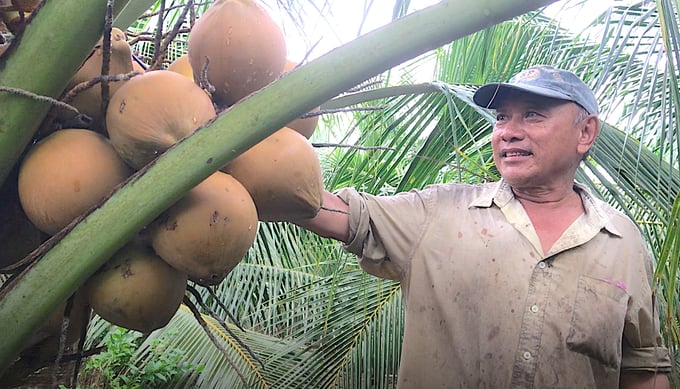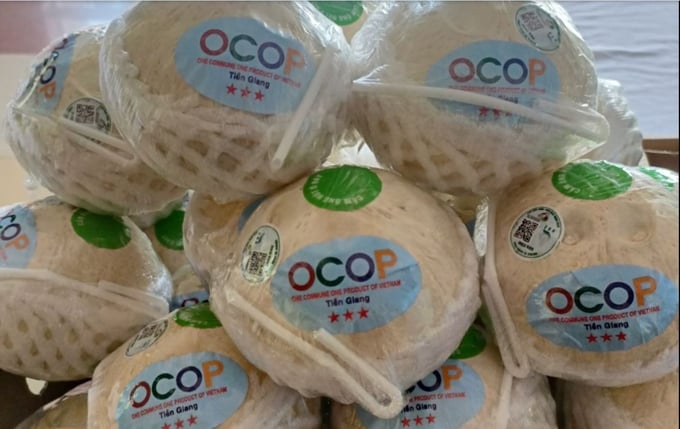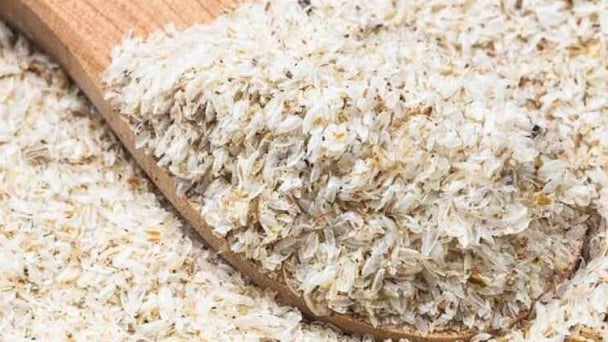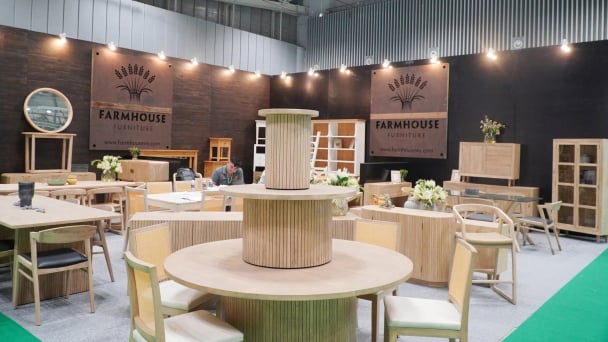May 29, 2025 | 05:18 GMT +7
May 29, 2025 | 05:18 GMT +7
Hotline: 0913.378.918
May 29, 2025 | 05:18 GMT +7
Hotline: 0913.378.918

The main coconut varieties grown for drinking in Tien Giang province today include Ta coconut, Green Siam, Red Siam, and Malayan coconut. Photo: Minh Dam.
With over 22,400 hectares of coconut-growing land, Tien Giang province is ready to boost fresh coconut exports to China. The province has 141 facilities and three enterprises focused on coconut products, mainly in Cho Gao, Chau Thanh, and Tan Phu Dong districts. Recently, three plantation areas and two packaging facilities underwent successful online inspections for export certification to China.
Tien Giang has established 47 traceable plantation codes over nearly 3,500 hectares to meet export requirements, ensuring compliance down to individual farms. The local agricultural sector has been proactive in guiding cooperatives, businesses, and packaging facilities through training and traceability procedures, making them well-prepared for official direct exports of fresh coconuts to the Chinese market.

Tien Giang has fresh coconut products certified with a 3-star OCOP standard. Photo: Minh Dam.
Previously, the Ministry of Agriculture and Rural Development (MARD) held an online conference to inform over 15 coconut-producing provinces and cities of China’s fresh coconut export regulations. During the event, Deputy Minister Hoang Trung instructed the Plant Protection Department to increase inspection and monitoring of export shipments. Any shipments in violation will be halted to protect other facilities.
Deputy Minister Trung emphasized that exporters must adhere strictly to the protocol regulations, purchasing only from certified plantation areas. He urged individual farmers and businesses to comply responsibly, as they share common plantation codes.
The Deputy Minister also highlighted the need for enhanced efforts to boost the coconut industry, increase grower incomes, and contribute to export revenues. Local authorities and businesses have proposed that MARD and relevant agencies establish a Mekong Delta Coconut Economic Development Research Center to support efficient, structured cultivation, production, and export processes, aiming to make the coconut industry a key economic sector in Vietnam.
Translated by Mai Quang Huy

(VAN) The import-export turnover between Vietnam and Singapore rose amid a trade rebound, with machinery, electrical equipment, and fuels making up the majority of the transaction value.

(VAN) Director General of the General Administration of Customs of China, Ms. Sun Mai Jun, has pledged to implement measures that will ease the import process for Vietnamese agricultural products.

(VAN) Although Vietnam is still increasing its coffee exports, the industry is currently in the process of determining market strategies in response to the U.S. imposition of reciprocal tariffs.

(VAN) With rising demand in Muslim-majority countries, Halal certification is becoming a critical passport for Vietnamese agricultural products seeking sustainable market access and consumer trust in the Middle East and Africa.

(VAN) Vietnam’s fruit and vegetable exports to the U.S. are rising sharply, and exporters are hoping that any upcoming reciprocal tariffs will be set at manageable levels.

(VAN) Despite meeting quality standards, Vietnamese rice bran exporters still face difficulties with administrative procedures under the new protocol.

(VAN) The U.S. is tightening import tariffs and origin inspections, requiring Vietnamese businesses to proactively prepare in terms of legal compliance, supply chains, and appropriate export strategies.